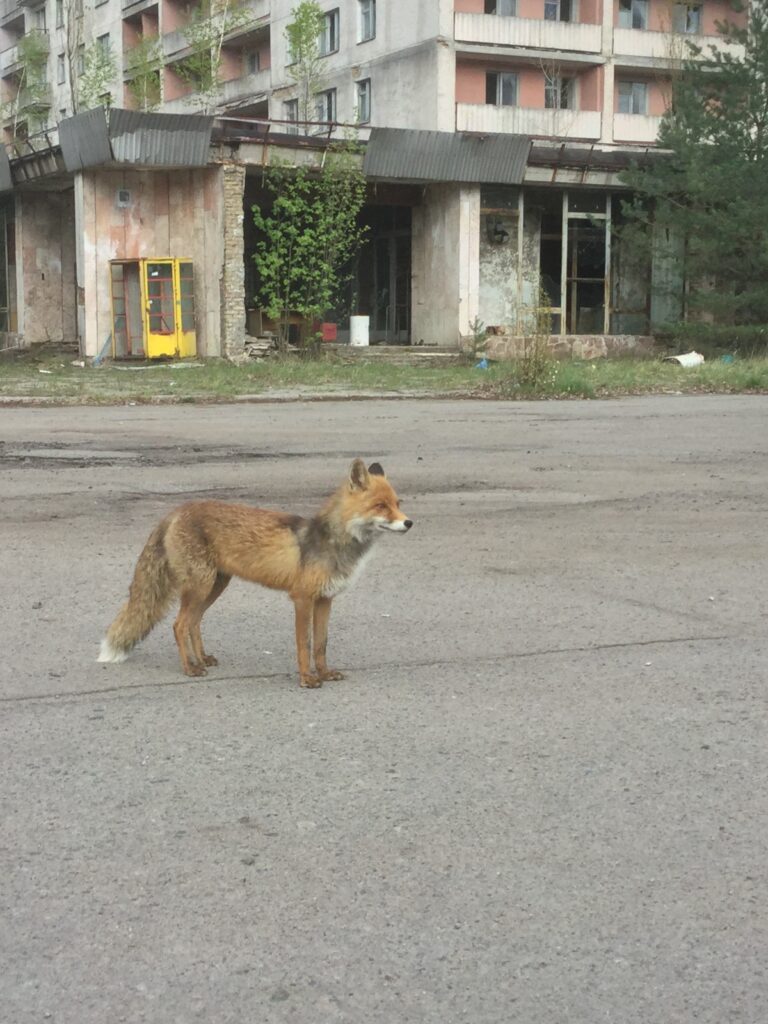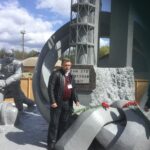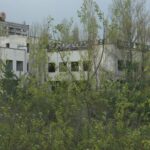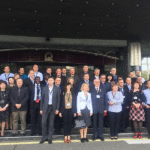28 April, 2016IndustriALL Global Union and its affiliate, the Nuclear Power and Industry Workers Union of Ukraine, held the International Nuclear Workers’ Union Network (INWUN) meeting in Kiev, Ukraine to commemorate the 30th anniversary of the tragedy at Chernobyl.
Energy union delegates from Canada, Great Britain, France, Japan, South Africa, South Korea, Spain, Switzerland and the Ukraine participated in the 19 and 20 April meeting on global nuclear tendencies.
The main subject of the discussion was the dramatic accident at the Chernobyl Nuclear Power Plant in the then-Soviet Ukraine on 26 April 1986 and the working conditions of the people still on duty at Chernobyl.
The meeting was hosted by the Nuclear Power and Industry Workers ‘of Ukraine, Atomprofspilka. Its president, Valeriy Matov, chaired the meeting and made a presentation about the situation of workers 30 years after the Chernobyl tragedy.
The day after the meeting participants visited the Chernobyl exclusion zone.
Today about 6,500 workers on the state payroll are working at various facilities in the Chernobyl exclusion zone and another 2,500 people are working right at the Chernobyl nuclear power plant.
Maksim Orlov, the chairman of the Nuclear Power and Industry Workers Union of Ukraine’s local union at the Chernobyl plant, said that in recent years the Ukrainian government took the wrong decision to decrease state financial support of the nuclear power plant maintenance, which has meant that workers at Chernobyl have had to work with a funding gap of 45 per cent.
Nikolay Teterin, chairman of the Chernobyl United Trade Union Organization and a representative of the Nuclear Power and Industry Workers Union of Ukraine, said financial support of works at the Chernobyl exclusion zone is decreasing every year. Meanwhile, the Chernobyl issues have not been resolved by the government, which is cutting benefits for people who live in the area.
Teterin says some believe the Chernobyl exclusion zone has been fully cleared of radiation and that economic activity could resume there, while others report on the catastrophic state of public health, especially children health. According to some studies, up to 80 per cent of children in the age group of twelve to seventeen years old, living at the territory close to the Chernobyl exclusion zone have precancerous conditions. Researchers think there might not be a third generation in this area. “The truth is somewhere in between,” concludes Teterin.
So far in 2016, financial support has decreased by 30 per cent, which has significantly worsened the working and living conditions of workers at the Chernobyl power plant. Furthermore, the government has made a draft decree that would deprive workers of a preferential pension. Teterin hopes that the new Ukrainian government will change its attitude towards the exclusion zone workers’ problems that have been raised by the union multiple times.
Ukrainian trade unions demand that the state authorities do not reduce the rights, guarantees and benefits of the people suffering from the Chernobyl tragedy; solve pension issues for the Chernobyl workers and accident liquidators; provide state financial support to ensure medical treatment of the injured persons oncological diseases; and to build oncological medical centres.
David Shier, chairperson of INWUN, also spoke about IndustriALL actions and achievements in the energy sector, while Diana Junquera Curiel, IndustriALL energy industry director, made a presentation on global developments in nuclear power and uranium mining. There was also a special session from Denryoku Soren from the Federation of Electric Power Related Industry Worker’s Union of Japan, updating participants on the situation in his country after the Fukushima nuclear accident three years ago.
A resolution to support the Nuclear Ukranian workers was approved unanimously at the meeting.






